Mississippi whitetail deer hunting guides offer expert knowledge and strategies for a successful hunt, providing insights into local habitats, seasonal patterns, and ethical practices to ensure a memorable experience.
Overview of Whitetail Deer in Mississippi
Whitetail deer are abundant in Mississippi, thriving in the state’s diverse habitats, from dense forests to agricultural landscapes. These deer are highly adaptable, with males weighing between 150-300 pounds and females smaller in size. Their diet consists of grasses, leaves, and crops, making them well-suited to Mississippi’s fertile environment. Known for their elusive nature, whitetail deer exhibit seasonal behavior patterns, such as rutting and migration, which hunters must understand to succeed. Mississippi’s whitetail population is healthy, supported by conservation efforts, making it a prime destination for hunters seeking a challenging and rewarding experience.
Importance of Hunting Guides for Success
Hunting guides play a crucial role in ensuring a successful whitetail deer hunt in Mississippi. Their extensive local knowledge of deer habitats, behavior, and movement patterns significantly enhances hunting strategies. Guides provide valuable insights into seasonal trends, stand locations, and calling techniques, increasing the likelihood of encountering mature bucks. Additionally, they handle logistics such as land access and equipment setup, allowing hunters to focus on the hunt. Their expertise also ensures ethical and safe hunting practices, making the experience both productive and memorable. For both novice and experienced hunters, guides offer mentorship and access to private lands, maximizing the chances of a successful hunt.
Structure of the Article
This article provides a comprehensive guide to Mississippi whitetail deer hunting, focusing on the role of hunting guides. It begins with an introduction to the guides and their importance. The structure then explores deer behavior, legal considerations, best practices, gear, techniques, and the role of guides. Conservation efforts and community resources are also discussed. Finally, the article concludes with key takeaways and tips for hunters. Each section is designed to offer valuable insights, ensuring hunters are well-prepared for a successful and ethical hunting experience in Mississippi.
Habitat and Behavior of Mississippi Whitetail Deer
Mississippi whitetail deer inhabit diverse landscapes, adapting to forests, agricultural lands, and wetlands. Their behavior includes seasonal movement, feeding patterns, and habitat preferences, influenced by environmental conditions.
Geographical Distribution in Mississippi
Mississippi whitetail deer are widely distributed across the state, thriving in various habitats. The Mississippi Delta and surrounding regions offer fertile ground for deer populations, with dense forests and agricultural lands providing ample cover and food sources. Deer are also found in the prairie regions and along river systems, where vegetation and water availability support their needs. While deer are present statewide, certain areas like the Delta and southeastern regions are particularly noted for their robust populations. This geographical diversity ensures that hunters have numerous opportunities to pursue whitetail deer across Mississippi’s landscapes, making it a prime destination for hunting enthusiasts.
Preferred Habitats and Ecosystems
Mississippi whitetail deer thrive in diverse ecosystems, including forests, agricultural lands, and wetlands. They favor areas with abundant food sources, such as soybean and cornfields, and dense cover like hardwood forests and swamps. Deer often inhabit edges where forests meet open fields, providing both shelter and feeding grounds. River systems and bottomlands also attract deer, offering water and lush vegetation. The state’s mix of habitats supports robust deer populations, making Mississippi a prime destination for hunters seeking trophy bucks and memorable experiences in varied and productive ecosystems.
Seasonal Behavior Patterns
Mississippi whitetail deer exhibit distinct seasonal behavior patterns. During summer, deer focus on feeding and preparing for fall, often staying in shaded, cooler areas. In fall, the rut drives activity, with bucks actively pursuing does, increasing movement during dawn and dusk. Winter brings reduced activity as deer rely on stored fat, seeking shelter in thick cover. Spring sees deer recovering and feeding on new vegetation, with fawns being born. Understanding these patterns is key for hunters, as it helps predict deer movement and habitat use, enhancing the likelihood of a successful hunt in Mississippi’s diverse whitetail range.

Legal Considerations for Hunting in Mississippi
Hunting in Mississippi requires proper licensing, permits, and adherence to seasonal regulations. Bag limits and private land permissions are essential to ensure legal and ethical hunting practices.
Licensing Requirements for Hunters
Hunters in Mississippi must obtain proper licenses, including a valid hunting license and additional permits for specific privileges. Resident and non-resident licenses are available, with discounts for youth, seniors, and military personnel. A habitat stamp may also be required for certain hunting areas. Licenses can be purchased online or at local vendors through the Mississippi Department of Wildlife, Fisheries, and Parks. Proper documentation, such as a hunter education certificate, may be needed for first-time applicants. Compliance with licensing requirements ensures legal hunting and supports wildlife conservation efforts in the state.
Seasonal Regulations and Bag Limits
Mississippi establishes specific hunting seasons for whitetail deer, including archery, muzzleloader, and firearm seasons, each with designated start and end dates. Bag limits vary by region and hunting method, typically allowing a combination of bucks and does. Antler restrictions, such as minimum point counts, may apply in certain areas to protect young males. These regulations aim to conserve deer populations and ensure sustainable hunting. Hunters must adhere to these rules to maintain ecological balance and uphold ethical hunting practices. Compliance with seasonal regulations and bag limits is crucial for preserving Mississippi’s whitetail deer for future generations.
Permits and Permissions for Private Lands
Hunting on private lands in Mississippi requires obtaining permits and permissions from landowners, often through written agreements or leases. Guides assist hunters in securing access, ensuring compliance with specific rules and regulations. Respecting landowners’ rights is essential for ethical hunting and maintaining future opportunities. Proper documentation and adherence to property terms are necessary. Failure to obtain permits can result in legal consequences, emphasizing the importance of working with reputable guides to navigate these requirements effectively.
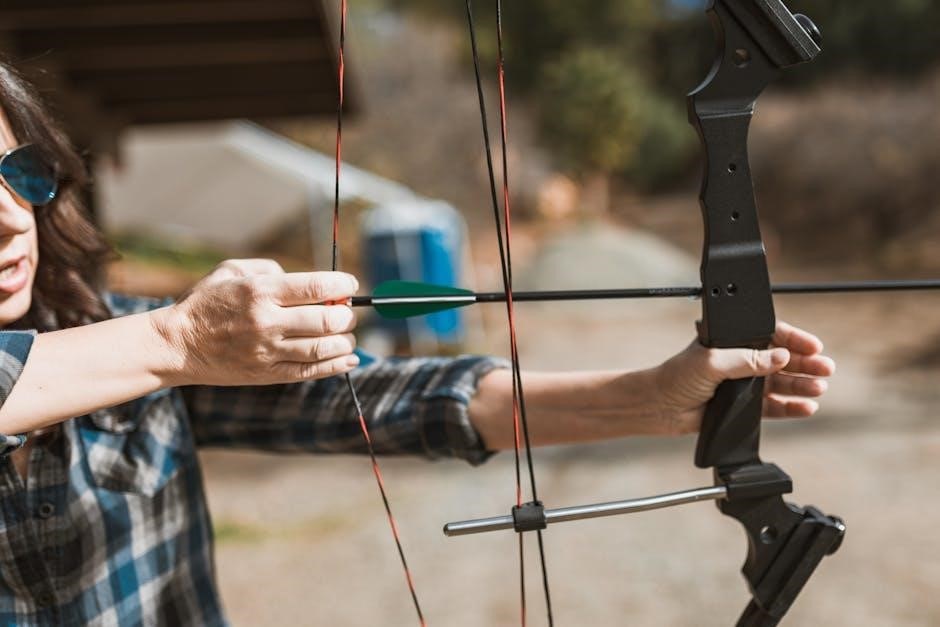
Best Practices for Whitetail Deer Hunting
Best practices for whitetail deer hunting involve thorough preparation, respecting nature, ethical conduct, and using proven strategies to ensure a successful and sustainable hunting experience.
Pre-Hunt Preparation and Planning
Effective pre-hunt preparation involves scouting locations using tools like Google Earth, planning stand setups, and understanding deer behavior. Hunters should ensure all gear is in good condition and permits are secured. Proper hygiene practices, like avoiding outdoor bowel movements, help maintain a low profile. Packing essentials like weapons, camouflage, and navigation tools is crucial. Guides often recommend studying seasonal deer patterns to identify high-traffic areas. Detailed planning ensures a smooth and ethical hunting experience, maximizing success while respecting nature and regulations.
Ethical Hunting Practices
Ethical hunting practices are essential for respecting wildlife and ensuring sustainable hunting. Hunters must prioritize quick, clean kills to minimize animal suffering and avoid wounding deer. It’s crucial to respect the animal’s life and only harvest what is necessary. Avoid unnecessary killing, and always use edible parts to honor the deer. Guides emphasize transparency in hunting practices, ensuring hunters understand the importance of ethical behavior. This approach fosters a positive image of hunting and promotes conservation efforts, ensuring balanced deer populations for future generations. Ethical practices also include proper field dressing and handling of meat to maintain quality and safety.
Post-Hunt Procedures and Etiquette
After harvesting a deer, proper field dressing and handling are crucial to ensure meat quality and safety. Hunters should promptly clean and cool the carcass to prevent spoilage. Respect the animal by utilizing edible parts and following ethical guidelines. Always obtain permission before hunting on private land and leave the property in better condition than found. Post-hunt etiquette includes thanking landowners, sharing hunting stories, and adhering to local regulations. These practices promote a positive image of hunting, foster sportsmanship, and contribute to the sustainability of deer populations for future generations. Ethical post-hunt behavior is essential for maintaining hunting’s reputation and conservation efforts.
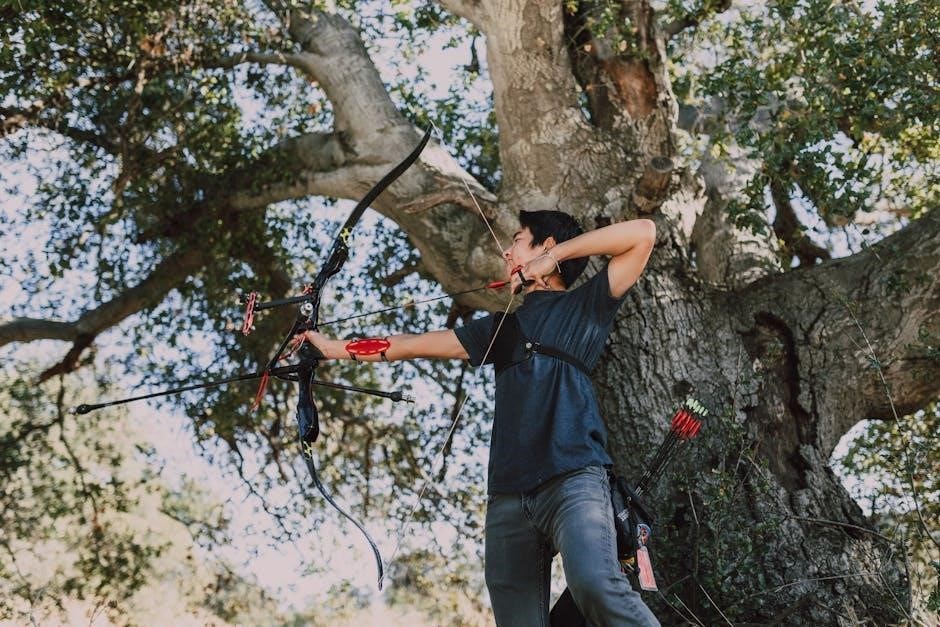
Gear and Equipment for Whitetail Deer Hunting
Essential gear includes a reliable firearm or bow, tree stands, grunt calls, and rattling antlers. Proper clothing, camouflage, and scent control are also critical for success.
Essential Weapons and Tools
Firearms and archery equipment are primary tools for whitetail deer hunting. Rifles in calibers like .243 Winchester or .30-06 Springfield are popular, offering precision and power. Compound bows and crossbows are favored for their stealth and effectiveness. Optics like scopes enhance accuracy, while tree stands and ground blinds provide vantage points. Grunt calls and rattling antlers mimic deer communication, attracting prey. Broadheads are crucial for ethical bow kills, and binoculars aid in spotting. The right gear ensures a safe, successful, and respectful hunt, combining tradition with modern efficiency for Mississippi hunters;
Clothing and Camouflage Strategies
Effective camouflage is vital for Mississippi whitetail deer hunting. Hunters should wear patterned clothing like Realtree or Mossy Oak to blend into wooded environments. Earth tones and textured fabrics help hide movement. Scent-blocking gear minimizes human odor, while face masks and gloves conceal skin. Layering with breathable, moisture-wicking fabrics suits Mississippi’s humid climate. Sturdy, waterproof boots are essential for navigating wet terrains. Stealth-focused footwear, like rubber boots, reduces noise. Proper clothing ensures hunters remain undetected, increasing chances of success and enhancing the overall hunting experience in Mississippi’s diverse habitats.
Technology and Accessories for Hunting
Modern technology enhances Mississippi whitetail deer hunting success. Trail cameras enable scouting without disturbing deer, while range finders ensure accurate shots. GPS devices help navigate vast hunting areas. Scent attractants and electronic calls, like grunt or rattling devices, mimic deer behavior. Tree stands and ground blinds provide concealment. Binoculars aid in spotting deer at distances. Motion-activated decoys draw bucks closer. Shooting rests stabilize firearms for precise aim. These tools, combined with traditional tactics, improve hunting efficiency and effectiveness, ensuring a rewarding experience in Mississippi’s diverse deer habitats.
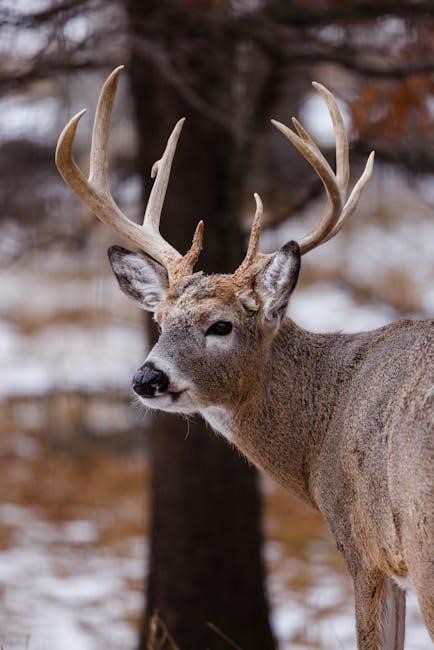
Hunting Techniques and Strategies
Effective techniques include stand hunting, stalking, and calling. Pre-hunt planning and strategic positioning enhance success. Balancing modern methods with traditional tactics ensures a productive and memorable hunt.
Stand Hunting and Ambush Tactics
Stand hunting involves setting up in elevated positions or ground blinds near deer trails or feeding areas. Ambush tactics require patience, concealment, and timing. Hunters should choose stands based on deer movement patterns, such as near food sources or edge habitats. Remaining silent and still is crucial to avoid detection. Using camouflage and scent control enhances effectiveness. Guides often recommend early morning or late afternoon setups when deer are most active. Staying vigilant and prepared for quick shots is essential. These strategies, combined with local knowledge, increase the chances of a successful harvest. They allow hunters to outsmart whitetail deer in their natural habitat.
Stalking and Still-Hunting Methods
Stalking and still-hunting require patience, stealth, and a deep understanding of deer behavior. Hunters move quietly, using natural cover like trees and brush to remain undetected. Slow, deliberate steps and avoiding sudden movements are key. This method demands a high level of skill and physical fitness, as it involves tracking and closing in on deer without being seen. Guides often teach techniques for reading signs and anticipating deer paths. Still-hunting involves freezing in place when deer are near, blending into the environment. These tactics rely on precise timing and a calm demeanor, making them a challenging yet rewarding way to hunt whitetail deer.
Calling and Rattling Techniques
Calling and rattling are effective methods to attract whitetail deer, especially during the rutting season. Guides often use grunt calls to mimic bucks, bleat calls for does, or rattling antlers to simulate sparring deer. Timing is crucial, as deer respond best to calls that match their current behavior. Hunters must master realistic sequences to avoid sounding artificial. Rattling antlers can provoke a dominant buck’s response, while soft grunt calls can draw in cautious deer. Patience and subtlety are key, as overcalling can alarm deer. These techniques require practice and a deep understanding of deer communication patterns to ensure success in the field.
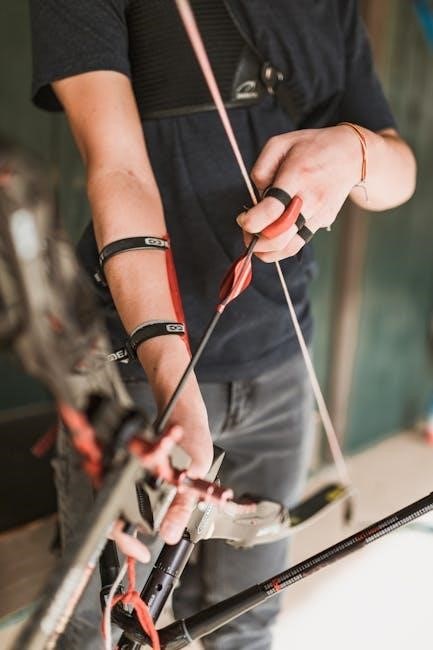
Role of Professional Guides in Mississippi
Professional guides in Mississippi provide expertise on whitetail deer behavior, habitats, and regulations, ensuring hunters maximize success while adhering to ethical and legal standards for a memorable experience.
Benefits of Hiring a Hunting Guide
Hiring a Mississippi whitetail deer hunting guide offers numerous advantages, including local expertise, enhanced success rates, and access to prime hunting locations. Guides provide in-depth knowledge of deer behavior, habitats, and seasonal patterns, ensuring a more productive and enjoyable hunt. They also assist with stand placement, calling techniques, and tracking, maximizing your chances of harvesting a trophy buck. Additionally, guides often have access to private lands, reducing competition and increasing opportunities. Their experience ensures a safe, ethical, and memorable hunting experience, making them an invaluable resource for both novice and experienced hunters seeking to make the most of their time in the field.
Qualifications and Experience of Guides
Mississippi whitetail deer hunting guides possess extensive experience and in-depth knowledge of local deer behavior, habitats, and seasonal patterns. Many guides have spent years honing their skills in Mississippi’s diverse ecosystems, ensuring they can navigate and predict deer movements effectively. Their expertise includes tracking, stand placement, and the use of effective calling and rattling techniques. Guides are also well-versed in safety protocols and ethical hunting practices, ensuring a responsible and successful hunt. Their qualifications often include certifications in wildlife management or hunting safety, further solidifying their credibility as reliable and skilled professionals in the field.
Choosing the Right Guide Service
Selecting a reputable Mississippi whitetail deer hunting guide service requires research and due diligence. Look for guides with proven experience and a strong track record of success in Mississippi’s specific hunting conditions. Ensure they are familiar with local deer behavior, habitats, and seasonal patterns. Check reviews and ask for references to assess their reliability and expertise. A good guide service will offer transparent pricing, appropriate equipment, and a focus on safety and ethical practices. Additionally, ensure their hunting style aligns with your preferences, whether traditional or modern methods. Proper licensing and insurance are also essential for a secure and legal hunting experience.
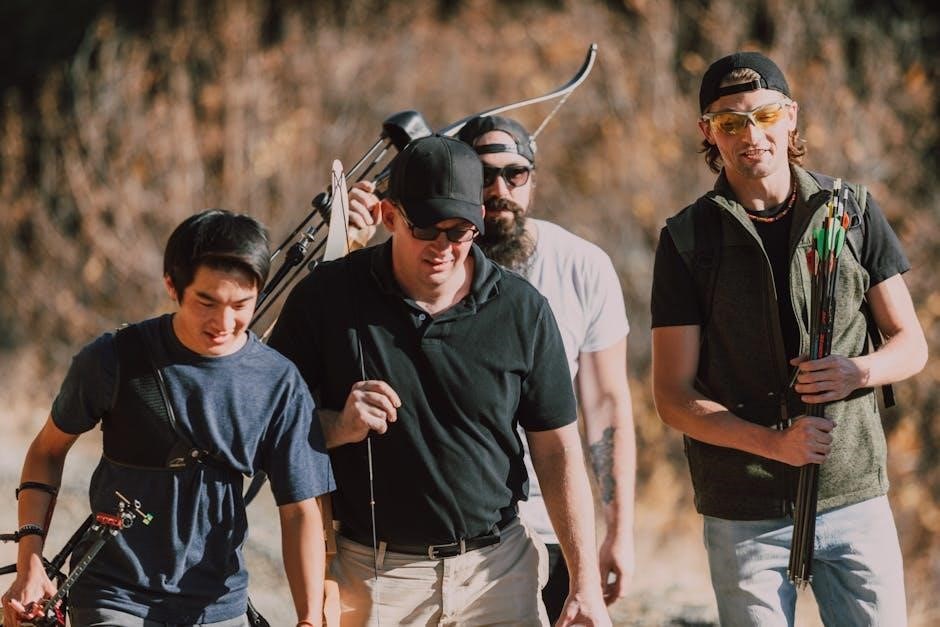
Wildlife Management and Conservation
Hunters play a vital role in wildlife conservation by helping manage deer populations sustainably, ensuring healthy ecosystems and balancing nature through responsible hunting practices.
Role of Hunters in Wildlife Conservation
Hunters contribute significantly to wildlife conservation by managing deer populations, preventing overgrazing, and maintaining ecological balance. Their efforts ensure sustainable herds and healthy ecosystems.
Through license fees and donations, hunters fund conservation programs, supporting habitat restoration and wildlife research. Ethical hunting practices preserve deer herds for future generations while promoting biodiversity and environmental stewardship.
Management Practices for Sustainable Hunting
Effective management practices ensure sustainable whitetail deer hunting in Mississippi. Habitat conservation and controlled harvests maintain healthy deer populations and ecosystems. Hunters and guides collaborate to monitor herd sizes, avoid overhunting, and protect vulnerable areas. Implementing age-based harvest restrictions helps preserve mature bucks, promoting genetic diversity. Seasonal bag limits and selective hunting practices prevent overexploitation, ensuring balanced populations. These strategies, guided by wildlife experts, foster long-term sustainability while supporting Mississippi’s rich hunting traditions and environmental health.
Impact of Hunting on Deer Populations
Regulated hunting plays a crucial role in maintaining Mississippi’s whitetail deer population balance. It helps control numbers, preventing overgrazing and habitat degradation. Hunting removes surplus deer, reducing competition for resources and supporting herd health. However, overhunting can disrupt buck-to-doe ratios and reduce genetic diversity. Experienced hunters prioritize ethical practices, ensuring quick, clean kills to minimize wounding and avoid unnecessary suffering. By adhering to seasonal limits and selective harvesting, hunters contribute to sustainable deer management, preserving Mississippi’s rich hunting legacy for future generations while maintaining ecological equilibrium.
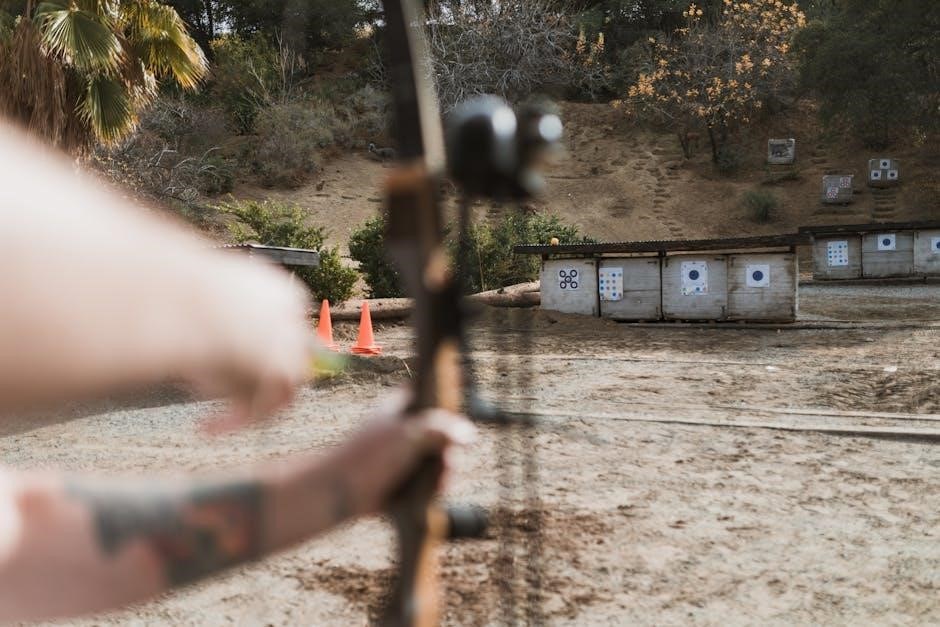
Community and Resources for Hunters
Mississippi offers vibrant hunting communities, with local clubs, online forums, and workshops providing valuable resources for hunters to share knowledge, improve skills, and connect with enthusiasts.
Local Hunting Clubs and Organizations
Local hunting clubs and organizations in Mississippi provide vital support for hunters, offering networking opportunities, skill development, and access to shared knowledge. These groups often host workshops, guided tours, and conservation efforts, fostering a sense of community among hunters. Many clubs partner with wildlife agencies to promote sustainable hunting practices and habitat preservation. For new hunters, these organizations serve as invaluable resources, providing mentorship and hands-on experience. By joining these clubs, hunters can enhance their skills, stay updated on regulations, and contribute to the conservation of Mississippi’s whitetail deer population, ensuring a thriving hunting tradition for future generations.
Online Forums and Information Sources
Online forums and information sources provide Mississippi whitetail deer hunters with valuable insights, tips, and real-time updates. Platforms like Mississippi Wildlife Federation and dedicated hunting forums allow hunters to share experiences, ask questions, and learn from seasoned experts. Social media groups and websites specialize in deer hunting, offering tutorials, gear reviews, and regional updates. These resources help hunters stay informed about seasonal patterns, habitat conditions, and legal requirements. Additionally, YouTube channels and blogs from experienced guides offer practical advice and strategies. Engaging with these online communities fosters a sense of camaraderie and ensures hunters are well-prepared for their next adventure in Mississippi.
Workshops and Training Opportunities
Mississippi offers various workshops and training opportunities to enhance hunting skills and knowledge. Programs like hunter education courses and deer hunting clinics provide hands-on training, covering topics such as wildlife conservation, ethical hunting practices, and gear usage. Experienced guides and wildlife experts often lead these sessions, sharing insights on tracking, habitat management, and seasonal deer behavior. These workshops are ideal for both novice and seasoned hunters, fostering a deeper understanding of whitetail deer ecology and hunting strategies. Attending these programs ensures hunters are well-prepared and informed, contributing to a sustainable and enjoyable hunting experience in Mississippi.
Mississippi whitetail deer hunting guides offer expert strategies for success. Respect nature, plan thoroughly, and hunt responsibly to ensure a memorable experience and lasting memories.
Mississippi whitetail deer hunting guides provide essential expertise for a successful and ethical hunt. They offer local knowledge of deer habitats, seasonal behavior, and effective strategies. By understanding legal requirements, preparing properly, and using the right gear, hunters can maximize their chances of success. Guides emphasize ethical practices, such as fair chase and responsible harvesting, to promote sustainable hunting. Their insights help hunters navigate Mississippi’s diverse ecosystems, from forests to agricultural lands, and adapt to varying conditions. With their guidance, hunters can enjoy a rewarding experience while contributing to wildlife conservation and respecting the state’s rich hunting traditions.
Encouragement for New Hunters
New hunters, embrace Mississippi’s whitetail deer hunting as an exciting adventure! With expert guides, you’ll gain insights into local habitats and strategies, making your experience both enjoyable and rewarding. Don’t be intimidated—hunting is a skill that improves with time and practice. Start small, learn from mentors, and respect the wildlife and environment. Remember, ethical hunting and sustainable practices are key to preserving this tradition. Mississippi’s diverse landscapes offer countless opportunities to connect with nature and grow as a hunter. Take the first step, and let the thrill of the hunt become a lifelong passion!
Final Thoughts on Hunting in Mississippi
Hunting whitetail deer in Mississippi is a rewarding experience, blending rich natural beauty with thrilling challenges. With expert guides, hunters can navigate diverse habitats and seasonal patterns, ensuring memorable adventures. Ethical practices and conservation efforts are vital to preserving this tradition. Mississippi’s abundant wildlife and scenic landscapes make it a paradise for hunters of all skill levels. Whether you’re a seasoned hunter or just starting, the state’s resources and guides provide the tools for success. Embrace the camaraderie, respect the environment, and cherish the memories made in Mississippi’s great outdoors.
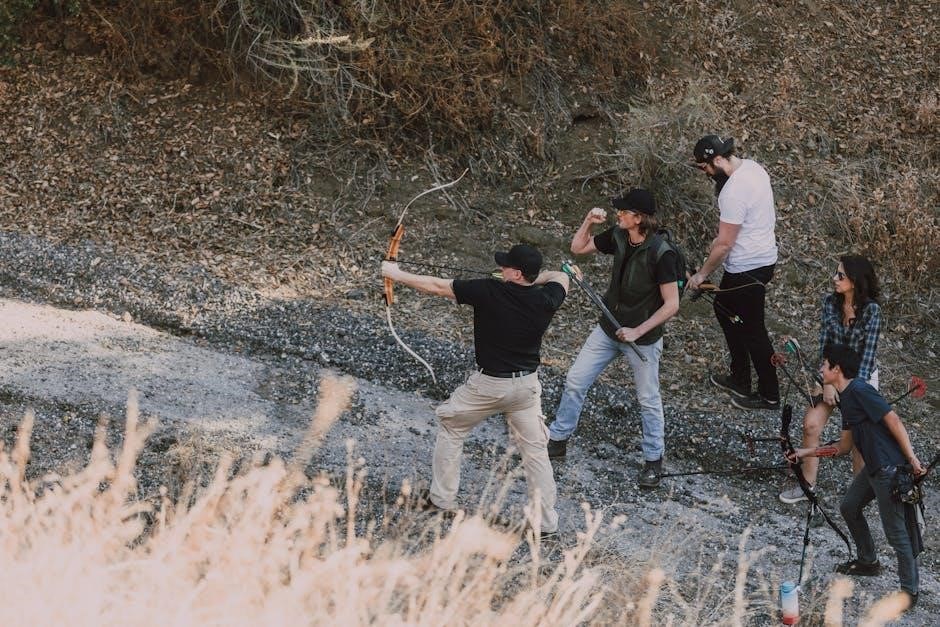
Leave a Reply